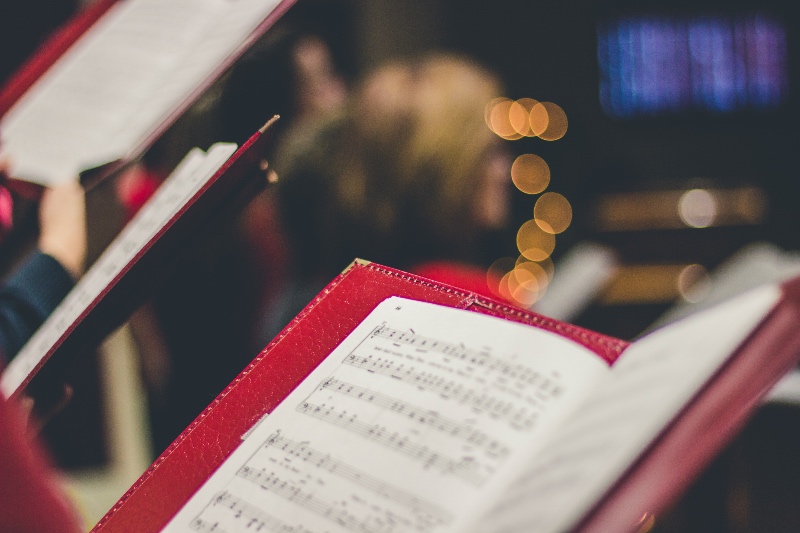The Christmas gift for people living with dementia
Dementia affects the brain and cognition, but it doesn’t touch the soul and the spirit of a person, and at Christmas time, especially, the Holy Spirit can be released through our worship and spiritual songs. By Louise Morse

It’s beginning to look a lot like Christmas! Supermarket shelves are full of all things Christmassy, and Sainsbury’s is handing out its seasonal food order forms. After months of Covid separation friends and families are planning to celebrate a ‘proper’ Christmas, one that includes worshipping together again in ‘real’ church services. And the company, the celebrations and the worship can bring a special blessing for people living with dementia.
One of the greatest gifts is the way the Holy Spirit magnifies our understanding of all things spiritual (2 Corinthians 4: 18). Dementia affects the brain and cognition, but it doesn’t touch the soul and the spirit of a person, and at Christmas time, especially, the Holy Spirit can be released through our worship and spiritual songs. There’s a reflection of this in the lyrics to ‘O Holy Night’, where it goes, ‘long lay the world in sin and error pining, till He appeared and the soul felt its worth.’
This year Christmas will bring together people who haven’t seen each other for a long time and you may see some changes among older relatives. Experts are expecting a rise in dementia because of the Covid effect, and it’s known that feelings of loneliness increase vulnerability to dementia. But forgetfulness and apathy may be due to mild cognitive impairment (MCI), a condition that again, can be brought on by stress and loneliness. MCI is reversible in most cases.
If your Christmas gatherings include someone with dementia or MCI you’ll want them to be contented. They will enjoy the time better if their sensory input is not overloaded. A comfy chair in the corner, with a little side table for a cup of tea and a mince pie is better than in the centre of a crowded room with high noise levels.
An excellent example of including someone with a disability without putting them under pressure happened around a hospital bed. Marie, in her late 60s, was recovering after major surgery. She had a large family of six children, and one evening they came into the hospital and, after greeting her with a careful hug, found some chairs and sat around her bed and chatted amongst themselves, with an occasional word or nod to her. She clearly felt included, but wasn’t expected to have to make an effort to join in, although she did a few times, of course. She was just happy to have them there and see them being family. Each of them brought a little gift and put it on her bedside locker, which made it look like Christmas.
At Christmas time, through the worship and familiar, beloved hymns and liturgy, deep calls to deep and the Holy Spirit speaks to our spirits. We are ‘strangely warmed’ as John Wesley described an experience. It touches the essence of who we are, and can make our spirits soar. Spirit to spirit communication bypasses a damaged brain, and makes a soul feel its worth. It can also help the person emerge through the fog, with faculties that they had apparently lost. It happens at other times of the year of course, but there is more stimulus at Christmas time with its church services, worship, and Scripture reading. It is a precious thing to be touched by the Holy Spirit.
You can also find on our website www.pilgrimsfriend.org a small programme of Brain & Soul Boosting for Seniors (BSBS) at Christmas time. We are receiving good reports on the results being seen. The Christmas version is suitable for a small group or for a couple.
Also good for sharing together is our new picture book, God’s Word in God’s World. It was designed by Ruth Ranger, whose father is in one of our homes. Looking at the pictures and saying the Scripture verses out loud can be a boon for someone living with dementia.
Image | David Beale | Unsplash
Louise Morse is a speaker and author of several books on issues of old age, including dementia. She is also external relations manager with the Pilgrims’ Friend Society, a Christian charity founded in 1807 to help support needy elderly Christians.
Do you have a view? Share your thoughts via our letters' page.
Baptist Times, 11/10/2021